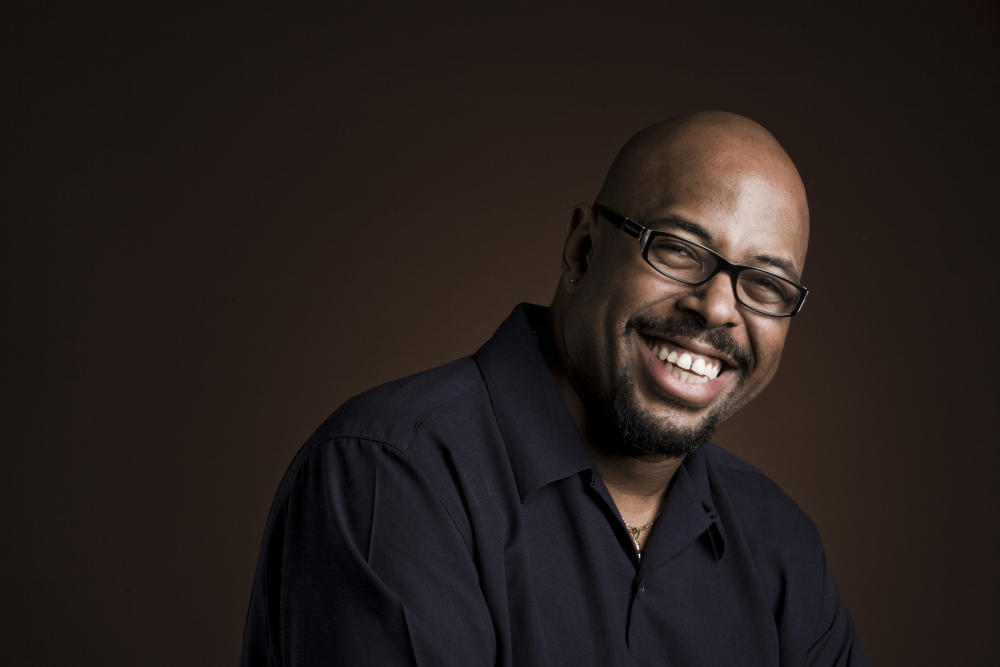A Grammy-Winning Tour de Force by His Trio
I chuckled this morning reading an article touting the bassist Christian McBride for this Grammy-winning solo on what the writer referred to as “a tune called ‘Cherokee’.” For jazz people, and most anyone with knowledge of 20th century popular music, referring to the English composer Ray Noble’s song as “a tune called…,” is comparable to saying “a book called Moby Dick,” or “a painting called Mona Lisa.” Introduced in 1938, “Cherokee (Indian Love Song)” was the opening movement of Noble’s “Indian Suite.” It was also an immediate hit for saxophonist Charlie Barnet, who promptly made it his theme song, and Count Basie recorded the 64-bar, AABA tune as a two-sided, six-minute record in 1939. It also became an obsession with Charlie Parker, who made an artistic breakthrough and foundational bebop discovery while working over the tune’s complex chord progression in the early forties. Bird made this private recording of “Cherokee” in 1943, and it became the basis of his 1945 masterpiece “Ko Ko.” NPR spoke with Gary Giddins, author of Celebrating Bird: The Triumph of Charlie Parker, about “Cherokee” in 2000. Click here for the report.
McBride’s Best Improvised Solo on “Cherokee” was recorded in December 2014. It appears on the Mack Avenue Records release, Live at the Village Vanguard, which credits label executive and Springfield native Al Pryor as Executive Producer. It begins with McBride and a brush-wielding Ulysses Owens, Jr. for the first 16 bars of the lightning fast 4/4 arrangement, then transitions to waltz time when pianist Christian Sands enters on the song’s complex bridge. Sands then leads a thrilling succession of choruses before McBride’s solo becomes the centerpiece of the performance. (The filmed version below dates from 2012, a year before McBride recorded a studio version of “Cherokee” for his trio’s debut album, Out Here.)
The teen-aged McBride was the pride of the jazz world when he emerged in the late eighties and was hailed as a successor to the great Ray Brown. (In 1996, Brown founded the ensemble Super Bass to showcase his proteges McBride and John Clayton.) I first experienced the awe of seeing him in person when he played the Iron Horse a few times with the Benny Green Trio in the early nineties. As prodigious as Green and drummer Carl Allen were, the buzz was all about the young Philadelphian, whose intonation, rhythmic drive, creative interplay, and engaging stage presence signaled the arrival of a truly dynamic force. I’ve since seen him with Bobby Watson, Joshua Redman, and his own groups, and will long count as a highlight of Sonny Rollins’s 80th birthday concert at the Beacon Theater in New York his trio performance with McBride and Roy Haynes.
To no one’s surprise, CMcB’s become one of the few household names in the jazz world, lately hosting NPR’s Jazz Night in America and the Sirius/XM series,“The Lowdown: Conversations With Christian.” He also plays leading roles with Jazz Aspen, the Los Angeles Philharmonic, and the Jazz Museum of Harlem. Back home in Philly, McBride and his wife, vocalist Melissa Walker, co-founded the community arts organization, Jazz House Kids.
While McBride deserves the highest accolades for his bowed (arco) and plucked (pizzicato) playing on “Cherokee,” what impresses me most about the performance is the dizzying display of three-part invention by the trio. The group’s junior member is the 26-year-old Christian Sands, a New Haven native who made his first album as a thirteen-year-old in 2002. Sands came under Billy Taylor’s tutelage at Jazz in July at UMass/Amherst, and Taylor showed him off at a Kennedy Center concert in 2005. He’s a graduate of the Manhattan School of Music. Ulysses Owens, Jr. was born in Jacksonville, Florida in 1982 and was only six when he began drumming in the Pentecostal church where his family worshiped. He told the jazz writer Ted Panken that his parents “urged him to be more than a church musician.” His early training was in classical music and orchestral percussion, and like McBride, he went on to earn a degree at Juilliard. Typical of the master drummers of his generation, Owens is at home with every idiom of modern music, and McBride hears in Sands a player who evokes “a mixture of all my favorite pianists: the flair of Oscar Peterson, the harmonic depth of Herbie Hancock and Mulgrew Miller, that in-the-pocket feeling of Red Garland and Sonny Clark.”
The trio’s first recording of “Cherokee” appeared on Owens’s 2012 release, Unanimous. Recorded for Criss Cross Jazz, the album shifts between trio, quintet, and sextet selections and includes Dizzy Gillespie’s “Con Alma,” Wayne Shorter’s “E.S.P.,” and Lee Morgan’s “Party Time.”
Speaking of prototypes, it was Ray Brown who created the basic arrangement of “Cherokee” that’s utilized by McBride’s trio. Brown first recorded the tune with Bud Powell and Max Roach in 1949. Here he works with it as part of a master class filmed by the BBC. Two of England’s finest jazzmen, pianist Brian Lemon and drummer Martin Drew, are heard with Brown. Drew was a member of Oscar Peterson’s trio between 1974 and 2007.
The Christian McBride Trio plays Scullers in Boston on Friday and Saturday, June 4 and 5. McBride is also touring this summer with the Chick Corea Trio, including a performance at the Montreal Jazz Festival on July 1, and later stops at Katonah, NY, Newport, RI, and Ozawa Hall at Tanglewood on July 31.
